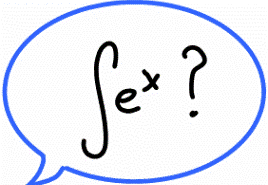Mathematical Methods of Economics Assignment Help

MATHEMATICAL METHODS FOR ECONOMICS
The objective of the course in mathematical methods for economics is to help students in understanding the topics in mathematics that are essential for the study of economic theory at the undergraduate level as well as in graduate level economic courses. Various fields of economics such as the courses on microeconomic theory, macroeconomic theory, statistics and econometrics employ a great deal of mathematical methods and techniques for solving problems in economics. Various tools of mathematics that are essential for the study of economics range from basic and fundamental level topics of logic and proof techniques; sets and set operations; relations; functions and their properties and the study of number systems. Also absolutely indispensible to the economic models is the knowledge of plotting graphs and various mathematical functions such as quadratic, polynomial, and power, exponential, logarithmic. The study of the topics on sequences and series is also done in this course. The course on mathematical techniques for economics looks at important topics such as the convergence, algebraic properties and applications of various sequences and series.

THEMES STUDIED UNDER MATHEMATICAL METHODS FOR ECONOMICS
The study of one and multi variable calculus is done under this course. Students are required to study the concept of continuous functions, their characterizations as well as properties and also the closely related concept of differentiable functions. Students of economics must know the techniques involved in differentiation of various mathematical functions till at least the second and higher order derivatives. The knowledge of derivatives is quite universal in microeconomic concepts of marginal value theories. There are many economic models which require plotting of various mathematical functions. Hence students need to understand the geometric properties of functions such as their concavity and convexity which aids them in easy characterization of the economic models. Various optimization exercises in macroeconomic as well microeconomic theory such as consumer theory, cost theory, firm theory require calculation of local and global optima as well as their geometric characterizations and characterizations using calculus and applications of differential calculus.

Application of Integral calculus
The topic of integral calculus finds vast application under the calculation of areas under curves. At a higher graduate level study of economics students are require to deal with complex topics of mathematics under linear algebra, single variable calculus, multivariable calculus and real analysis. The theory of linear algebra underlines various concepts of vector spaces, their algebraic and geometric properties, scalar products, norms, orthogonally. Students study the methods of linear transformations and their properties. The matrix algebra deals with matrix representations and conducting elementary operations such as addition, scalar multiplication and matrix multiplication, finding determinants and studying their properties, characteristics and applications through which students are taught to compute the solution to a system of linear equations.
The study of microeconomics as well as macroeconomics also requires the understanding and working of functions of multiple variables, techniques of graphical representations of multivariable functions as well as level curves is very essential for microeconomic theory and its applications. Knowledge of calculus is essential for studying comparative statics problems. The concept of implicit function theorem, homogeneous and homothetic functions along with their characterizations and applications is also taught under this course.
Problems of multi variable optimizations are often encountered in economic growth theories, microeconomic theories and various fields of macroeconomics. Students of economics must have knowledge of convex sets and quasi convex functions and their economic application to producer theory, consumer theory, social choice theory etc. Problems in economic models deal with unconstrained as well as constrained optimization exercises. Various geometric and calculus based techniques are involved in studying these economic problems. Lagrange characterization, the concept of lagrangian multiplier, study of value functions, envelope theorem and shadow values is also employed in macroeconomics theory, microeconomic theory, growth models, development economics and various other domains of economic theory.
Mathematical Methods of Economics Assignment Help By Online Tutoring and Guided Sessions from AssignmentHelp.Net

REASONS TO ORDER ONLINE Assignment Help IN MATHEMATICAL METHODS FOR ECONOMICS
- The mathematical methods for economics involve application of mathematical methods and techniques to represent economic theories and analyze problems posed in economics. It allows formulation and derivation of key relationships in a theory with clarity, generality, rigor, and simplicity.
- The aim of our online economics tutors is to teach the students of economics in a manner that they are able to understand the concepts of mathematics as well as develop the ability to apply them in relevant economic problem and theory.
- Thus our tutors can guide students of economics in learning techniques of mathematics that can very easily enable them to solve the challenging problems of economics as well as understand rigorous mathematical treatments in studies of economic theories.
- Assignment Help's experienced tutors can guide students of school, college as well as graduate level economic courses. They are well versed with the mathematical economics concepts thus enabling them to teach the students more efficiently and remove the fear of mathematics from their minds very easily.


